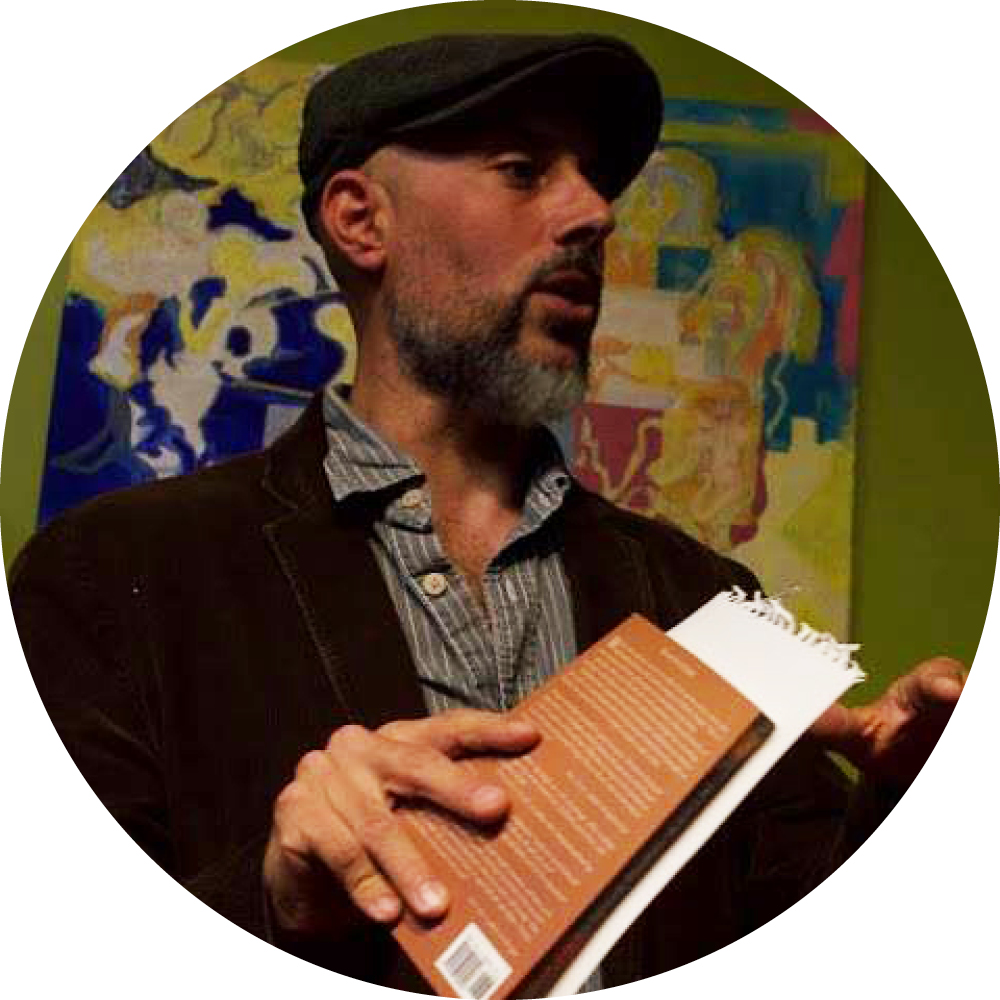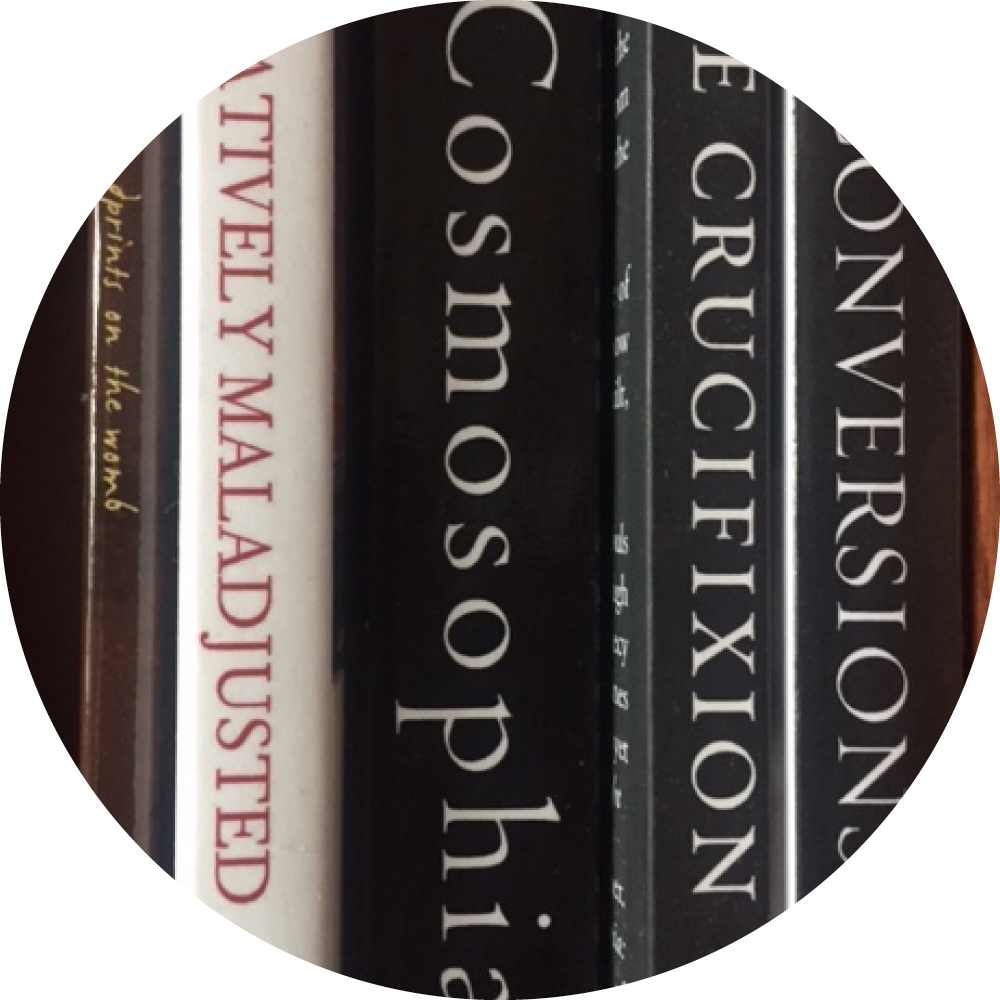Inherited Thought
By Mike Keating
It is written that experience is the best teacher. This common saying is used in many ways: to convince someone you are correct, based on experience versus other types of knowledge; by parents – after all, parents are always right. It is overused by people in leadership roles: military officers, coaches, all believing they are “always right.” But one thing is for certain, experience is part of a lifetime of learning and a very good teacher.
I believe that the following is possible:
Thought – that is, memory of experience – is a chemical reaction in the brain. All cells are made up of chemicals and thus are genetic; therefore thought – experience – is genetic. Since we already know that we inherit genes, thought is inheritable.
My Journey
This journey began many years ago as I mulled over the possibility that my dreams may have some place in my life. It was a regular task as a young man to look for the connections of my thoughts, daydreams and dreams, to life. But it wasn’t until years later while tracing my family roots that the possibilities became apparent.
My grandfather, Thomas F. Keating, was killed during a fire fight in Brouvielliers, France, during World War II. During the search for my roots, it became apparent that the military originally thought he was missing, when in fact he had suffered wounds earlier in 1944 and he was transferred to a hospital to recover. It was here that he met up with an old friend from home, Salvatore, and they went “out on the town.” Tom was not missing in action.
The next day, my grandfather was driven towards the front in Salvatore’s ambulance. He drove as close as he could letting Tom out where he “fell in with a unit from Oklahoma;” it was this unit that was involved in a fire fight at 19:00 hr. on October 20, 1944. Many soldiers lost their lives in the first ten minutes of this battle, he among them. I learned all this from letters he had sent my father while he was serving in the South Pacific. My father passed them on to me, and, while reading these letters, new information became known about him, this led to a petition to the government for his second Purple Heart 55 years later. During this quest it became even more apparent that the more I learned of my grandfather, the more I became aware of the similarities between him and me.
He was a hard-working son of an Irish immigrant that started many businesses. He was always trying new ideas. He loved music and dance and especially enjoyed musical variety shows. This mix of artistic appreciation and business man qualities is a definite link between us. Very little has ever been mentioned to me about my grandfather, but I know I am linked to him and I plan to show how this could be possible.
There is an aged photo of Tom Keating sitting on some stairs of a three decker on Cambridge Street in Worcester. He has a smile that hints at the experience and hard-working attitude within his personality. In his eyes he seems to have a look of a confident positive man. He was and I am. I believe that I have all the experience of others in my past in me. That thought alone is comforting and exciting at the same time.
Inherited Thought
While at the same time, that idea that experiences before my birth are embedded in my consciousness waiting to be accessed is a driving force for continued explorations of my mind. This argument theorizes that once we access these embedded experiences, which are experiences that etched themselves into our genetic makeup, then they can be reactivated through the process of accessing and expanded upon by new experiences that occurred after birth. This expansion of past experiences with new experiences is how people evolve.
This possibility can be thought of as instinct, intuition, premonitions, or Deja vu by some. Is it just one of these possibilities that makes a musician’s child or grandchild just that much better at music, or doctors who are descendants of doctors seem to become better at their profession; and of course the same can be said about athletes. Furthermore, how can we dismiss the obvious natural skill of motherhood. Are all these just one of the aforementioned intuitive notions, or is it possible that the child is accessing already possessed knowledge?
The Soul
The word soul is a possible connection to the idea of inherited thought and past philosophy. Ralph Waldo Emerson enhanced this possibility further with many of his essays; these essays show his importance in furthering my argument along with the advancement of human understanding of thought.
The belief in a soul is part of most religious studies and writings; and the word “soul,” is also a major link between the ancient philosophers, today’s philosophers, and religious practices still today. Furthermore, the word “soul” is the answer to what terminology best defines the idea of inherited thought.
All the present scientific exploration, along with the advancement in genetic understanding, will help advance the idea that we as human beings don’t reinvent the wheel with every birth and new memory. Instead, we move on by sharing, through inherited experience, the past successes and mistakes
These are not new questions or arguments. Plato, writing in Phaedo part one illustrates a debate, between Socrates and Simmias discussing the notion of recollection of things in our life and abstract equality of these notions:
[Socrates] Where did we get the knowledge of it? Was it not from seeing the equal pieces of wood, and stones, and the like, which we were speaking of just now? Did we not form from them the idea of abstract equality and the like…then before we began to see, and to hear, and to use the other senses, we must have received the knowledge of the nature of abstract equality. Did we not see, and hear, and possess the other senses as soon as we were born (47)?
Over twenty-five hundred years later, humanity is just now beginning to unravel the secrets of the human physiology. The genetic links between now and then is clear, proving how we have evolved into a thinking information based being. The experiences are carried forward and we benefit from past experience and build our lives by adding dimension and new experiences which in turn are carried forward.
It seems that there is no question that experience, knowledge, thought, all existed prior to birth and the word “soul” has evolved as the substance that carries on these human definitions.
Theoretically speaking, the use of the word “soul” is an important link between the ancient arguments to the present-day arguments. The use of the word “soul,” defined as: “the immaterial essence of an individual life; the spiritual principle embodied in human beings or the universe; the active or essential part [of a person],” (Webster 494) is interestingly linked in these essays to the possibility of known knowledge. So, it is clear that the use of the word “soul” is also an inherited definition signifying the possibility of past experiences being carried on.
Clearly, the profound questions of the day are still with us today. When writers use the word “absolute,” it seems to be a connotation upon the nature of God, and religiously speaking, the soul signifies God’s gift to mankind that holds the secrets to everlasting life. Thus, could we have the possibility that the argument of inherited knowledge is actually an argument of what is the “soul?” Furthermore, if the existence of the “soul” is not positively provable, but relates to the infinite, then could it be arguably from God? Both questions posed here more as a rhetorical suggestion allowing for the other possibility that religious teachings and inherited actions are linked and just as difficult to prove concretely. The strict adherence to a traditional structure found within most religions wouldn’t allow for the open-minded thinker to explore the links between prophet and someone who may just know how to access past experience.
Although a term most would agree is signifying some religious belief it is very important to pose the suggestion that when this argument is framed around the importance and terminology of the “soul,” it allows for the argument to be politically safe from religious sanctions. This is as applicable today, as it may have been in Plato’s day, for to further this argument, it is politically correct to phrase the questions around the knowledge of the “soul” being carried on, but political correctness and inherited thought are still miles apart.
Plato said of the soul: “Thus the soul, since it is immortal and has been born many times, and has seen all things both here and in the other world has learned everything that is…”
It is more important to allow for the mind of “man thinking” to discuss all the paradigms of these philosophical suggestions within other literary works that advanced the discussion of thought, man thinking and the essence of the soul.
Furthermore, a closed-minded debate over the origins of “soul” and the origins of God, is incapable of furthering this argument. More importantly is the need to stay focused on the terminology and the historical relevance of the word “soul” and its application to this argument.
Plato said of the soul: “Thus the soul, since it is immortal and has been born many times, and has seen all things both here and in the other world has learned everything that is…” (Plato, Meno 68), but he an we alike need to argue how, be it the “soul” or a cellular make up of genes, we prove this human ability of inherited thought. Plato also, mentions “the other world,” bringing into the debate another whole argument of religious beliefs, heaven hell and so on. Yet, for this argument the universal thoughts of the minds may be the other world, a world we are exploring here full of past experience being carried on. Imagination, daydreams, dreams, all are possible ways we are accessing inherited past experiences. These vehicles are also experienced based in actuality or in possibilities, either way it is either known or new experiences remembered in the mind.
Emerson
Emerging during the mid 19th century was the scholar who is portrayed herein as the bridge between the un-accepted science of evolution, and the accepted literary works that would advance the notions of humanity thinking. The America Scholar Ralph Waldo Emerson is one person who bridged the gap between science and philosophy by using essays and speeches to carry forth ideas surrounding human thought, experience, and the soul.
The natural human energy within our beings is inherited knowledge of experience. Furthermore, when we learn how to access this knowledge that transposes us to into thinking beings, and then we act upon our thoughts to advance our present-day situations. A good baseball player accesses the thoughts that drive that need; writers, scientist, parents, all walks of life all have to access thoughts and turn them into action by using human nature and human energy, all produced in the mind.
Emerson is the vehicle for this argument; for it is Emerson who may have brought the idea of the “soul” and human growth even further into the consciousness of early academia and also into this argument. Within many of his writings, Emerson talks and writes about the human “soul.” He also tries to argue the need for the American scholar to break loose from the bounds of the strict adherence to the then accepted traditional teachings and stretches the mind to look for new subjects for human development. The mind is the vast unknown, discussed and argued from Plato to now.
Emerson struggles because he was also accessing already thought experience, following in the footsteps of other religious teachings and professions. Emerson, like his relatives, became a minister, but he soon walked away from the pulpit and life of a minister. He walked away obviously because he was unhappy, but he also knew his soul was not whole and yearned to understand his thoughts and the workings of his mind. This notion alone brings up a possibility that has far reaching ramifications with regards to education guidance and life paths to success verses failure.
Emerson became a writer, speaker, and philosopher, and he was then driven to advance his thoughts though essays, speeches, and discussion groups. It took a great man, a great thinker, to have the courage to break the mold, listen to the unhappiness in his soul, to advance the attitude of man thinking and thus unveiling all of the possibilities within the human mind and consciousness. This change in life style by Emerson can further suggest that by learning to understand the possible links to our past knowledge could lead to a more productive thought producing life in the present.
This suggestion of inherited thought shows that we do have a free will to do as we wish. And, although we may think we are following our grandparents, parents etc. into a profession and thus we will be successful, what we don’t know is what was really going on in someone’s mind in someone’s consciousness, and thus the truth of their experiences is what is etched into the genetic makeup of the human existence. The truth is in our soul, and think about how many times we may say, “I feel it in my soul that this or that is right for me?”
Emerson has used nature as a way to tie in these possibilities. The mulberry plant becomes satin, and it has through centuries of natural evolution, become stronger and also has become resistant to climatic changes that has killed off other plants. The grub is the pupae stage of any insect. Be it the moth, the butterfly, beetle, or fly, they all have one thing in common, they have evolved from a earth bound insect to a flying insect, some as predators and problematic to human species; others as beauty that holds our imagination. My imagination is ripe with the idea that past life experience may allow me, if I learn all the ways to access them, to “come to the edge” (Logue), step off and fly within the possibilities of life now and before.
Emerson did just that, he stepped away from the pulpit and began to allow himself to become who we still admire. He continued to press forward advancing the notion of the soul, experience, and “man thinking.”
All humans are a walking history of facts, experience based. Emerson showed us that we have thoughts that are like others before us. Emerson is also bold enough to say they are the same, and the only way these thoughts could be passed down is by inheritance of the experience though evolution. He makes it clear that my belief is a possibility when he states:
If I see a trait, my children will see it after me, and of course of time all mankind—although it may chance that no one has seen it before me. For my perception of it is as much a fact as the sun” (142).
This quote ties in the reason why Emerson is the literary foundation for this argument. This is Emerson, an accepted philosopher and writer, suggesting that his children will perceive something even if they haven’t seen it as long as he has, and even if none of them saw what is perceived, it is real since someone has seen the trait. The experience is remembered and becomes a spontaneous instinct. These instincts become truths that we live by, they become part of our relation to the soul. It is his essay The Over Soul, that brings the importance of Emerson even more to light:
Man is a stream whose source is hidden. Our being is descending into us from we know not whence. The most exact calculator has no prescience that somewhat incalculable may not balk the very next moment. I am constrained every moment to acknowledge a higher origin for events than the will I call mine. As with events, so is it with thoughts… I see that I am a pensioner…I desire and look up and put myself in the attitude of reception, but from some alien energy the visions come (237).
The energy is a metaphor for the soul, but the alien energy that he suggests was alien in 1844, but not now, this being DNA, genes and their relation to evolution and the ability for experiences etched in our minds, our soul, are carried on. He further says:
We live in succession, in division, in parts, in particles. Meantime within man is the soul of the whole; the wise silence; the universal beauty, to which every part and particle is equally related; the eternal ONE… We see the world piece by piece, as the sun, the moon, the animal, the tree, but the whole, of which these are the shinning parts, is the soul (237).
Is Emerson suggesting that we look for ways to try to understand the thoughts we have? What wisdom can the horoscopes give us to understand the potential of this argument? Emerson is the bridge between the science of evolution and the literary acceptance of the potential of our thoughts, yet today the same discussions can be considered, different, new age, or even by some profane. Emerson is looking for ways to access past experiences to help live life and some of these ways could sound vain to some, but they are they secret to understanding the power of our thoughts.
Emerson states: “Every man’s words who speaks from that life must sound vain to these who do not dwell in the same thought…” another metaphor that shows how words become the literary tool that bridge the gap between the science of thought and the literary discussion of thought. The implications of the words written by philosophers linked new theories to old questions with regards to thoughts. This literary process seems to be waiting for the applied sciences to catch up with the philosophical notions of these intuitive thinkers. Emerson is almost apologizing for having deep thoughts, and excusing himself and other philosophers for being misunderstood.
The Question of the Soul Today
How has Emerson’s work carried forward into today’s literary work and discussions is now the question that needs answering. Furthermore, how has the terminology of the word soul expanded to include the possibilities already discussed?
My belief is that this orderly and intelligent happiness is achieved when we become in tune to our soul. The soul which is the storage facility for the thoughts and experiences of the past that can help us in this existence. “Man thinking,” accessing and attaining new heights can bring happiness because the experiences of the past can help build upon the “matter of fact knowledge” into a foundation of hopes and aspirations. When these hopes and dreams become reality, we become calm because of the permanent nature of the instinctive knowledge held within a soul that has the spiritual depth of the ages past.
The evolution of thought is constantly upon us as a species and as a culture. The far reaches of humanity’s intelligence is showing all the time just with the incredible advances of the electronic age. Yet, the understanding of the mind and the abilities we may have stored within its workings is far from being completely understood. Looking back at the early days of the evolution debate, it is apparent that the debate of thought began with the early Greek philosophers; but it was Emerson and his group of Concord thinkers who bridged the gap between the scientific evolution debate and the literary advancement of human thought.
Emerson is as read today as ever before; it may be that his brilliance and advanced notions are finally taking hold. All great thinkers who have advanced ideas leave our human physical existence long before all of their ideas are understood. If this argument is correct, the work was not for not, it was advanced by “Man thinking” and accessing past thoughts. Yet, Emerson would not have been happy unless he knew that the literary evolution and advancement of “man thinking” had continued.
A new age of writing surrounds the advancements of science and the genetic makeup of man. Along with this is the advancement of thought and its origins. The center for all of this is the accessibility of man to access the knowledge gained from past experiences. The meme theory is still a viable discussion. But it is the soul, and whatever it is made up of, that holds the key to inherited thought being used as an educational tool, scientific tool, as well as an overall study concerning the essence of the human mind.
Countless books are now written regarding the soul, the mind, and the understanding of inheritance. Many of these are still trying to answer the questions that surround reincarnation, and other sciences on the edge. The relevant fact is man is thinking and trying to understand the links between known events of the past and the memory of them that evolves within everyday life.
Thinking is safe; the unsafe comes when the secular aspects of society reach in and unplug the study of a possibility that would then make past history accessible. By reaching the thoughts of those before us, we are continuing the process of experience.
Conclusion
This article has invited us to wonder what is in our minds and where did it come from. I began with my grandfather, and I suggested that I learned more about myself while learning more about his life. I have sat alone many times and tried to focus on what I have been told is like him? How come we both played musical instruments, but can’t read music properly? Or how about his desire to be in different businesses, from a tea delivery route to lingerie manufacturer, not unlike myself. What drove an early desire to understand World War Two European History? Was I accessing thought? Maybe.
If I am right or wrong it doesn’t disrupt life in anyway. Anyone can delve into the ideas I have suggested and see where your mind brings you.
About The Author
Mike Keating
Mike has been jotting down poetic verse since his sophomore English teacher, Mr. Healy, introduced free form poetry to the class. As an Emersonian philosopher, nature plays an important role in a transcendental way in many of Mr. Keating’s poetry. Nature becomes a clear metaphor for hopes, dreams, and sadness making way for resurrection possible. Mr. Keating is a well-known businessman and is a part time professor at Becker College in Worcester, Massachusetts.
Re-sources
Re-Imagining Education

Empowering educators to take a deeper look at the stories told in our schools and to re-imagine them in transformative and
nurturing learning spaces.
Learning Opportunities

Classes, workshops, and lectures that help to empower people to re-imagine who they are and their place in the world.
Get Involved

Help the Chicago Wisdom Project realize its mission to re-imagine education through holistic programming that transforms individual, community and world through creative expression.
